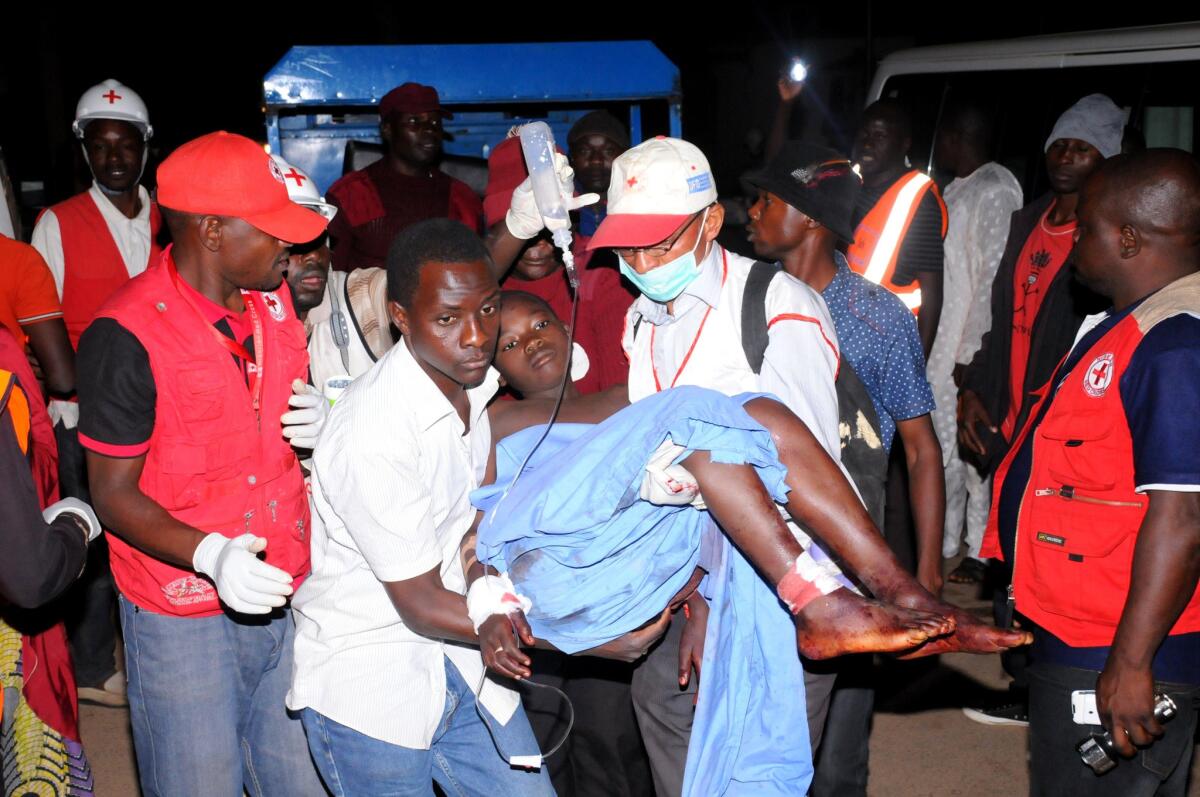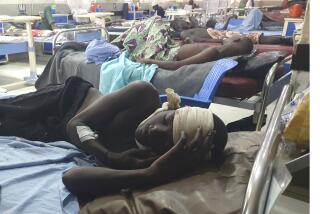Twin blasts in Nigeria market kill 31

- Share via
Reporting from Nairobi, Kenya — In Nigeria, the attacks are coming almost daily -- the latest a twin bombing Thursday in a crowded market in the city of Jos, killing at least 31 people.
Suicide bombings and planted bombs kill dozens at a time, in crowded city markets, colleges and bus stations, as the violent Islamist militant group Boko Haram, fighting to impose an Islamic state, targets civilians.
The twin bombing in Jos, in central Nigeria, came a day after two female suicide attackers detonated bombs at a popular textile market in the northern city of Kano, killing four.
Authorities warned that the number of casualties in the Jos attacks could rise, with many people severely injured and searches of the blast scenes continuing.
“The bodies recovered so far are 31 but rescue workers are at the scene and the figures may change,” Pam Ayuba, spokesman for Plateau state governor Jonah Jang, told the Vanguard newspaper.
Jos, a city at the crossroads of the mainly Muslim north and mainly Christian south, has experienced devastating violence, with twin bombings killing 130 in the same market in May. Though no one claimed responsibility, the attacks resembled previous bombings by Boko Haram and its offshoots.
According to Nigerian authorities, two other bombing attempts in Kano were averted Thursday. Police reported they arrested a 13-year-old female suicide bomber in Kano. They also claim to have safely detonated a bomb hidden in a bag in a popular food market.
The Jos attacks follow an attack by two female suicide bombers on the market in the troubled northeastern city of Maiduguri last week, killing 22 people.
The attacks are so frequent in Nigeria that they have come to be expected, attracting far fewer column inches in local newspapers than Nigeria’s heated political race in the lead-up to elections in February.
In recent months, Boko Haram has increasingly used female suicide bombers to carry out attacks, with some Nigerians expressing fears that girls kidnapped from towns and villages may have been indoctrinated to be used by the group.
Nigerian media reported last week that Boko Haram had established a suicide bomb squad of 50 women and girls, who can easily conceal explosives under their long flowing hijabs, Islamic garments that cover the body.
Reports of the female suicide squad came after the arrest and interrogation last week of a female suicide bomber near the university in Maiduguri, which has been a major target for the group.
Last month, two female suicide bombers killed 78 people in attacks on the Maiduguri market.
Hundreds of girls and women have been kidnapped in recent years, including 276 schoolgirls kidnapped in one incident from the northeastern town of Chibok in April, sparking an unsuccessful global campaign for their release, with the hashtag #BringBackOurGirls.
More to Read
Sign up for Essential California
The most important California stories and recommendations in your inbox every morning.
You may occasionally receive promotional content from the Los Angeles Times.










